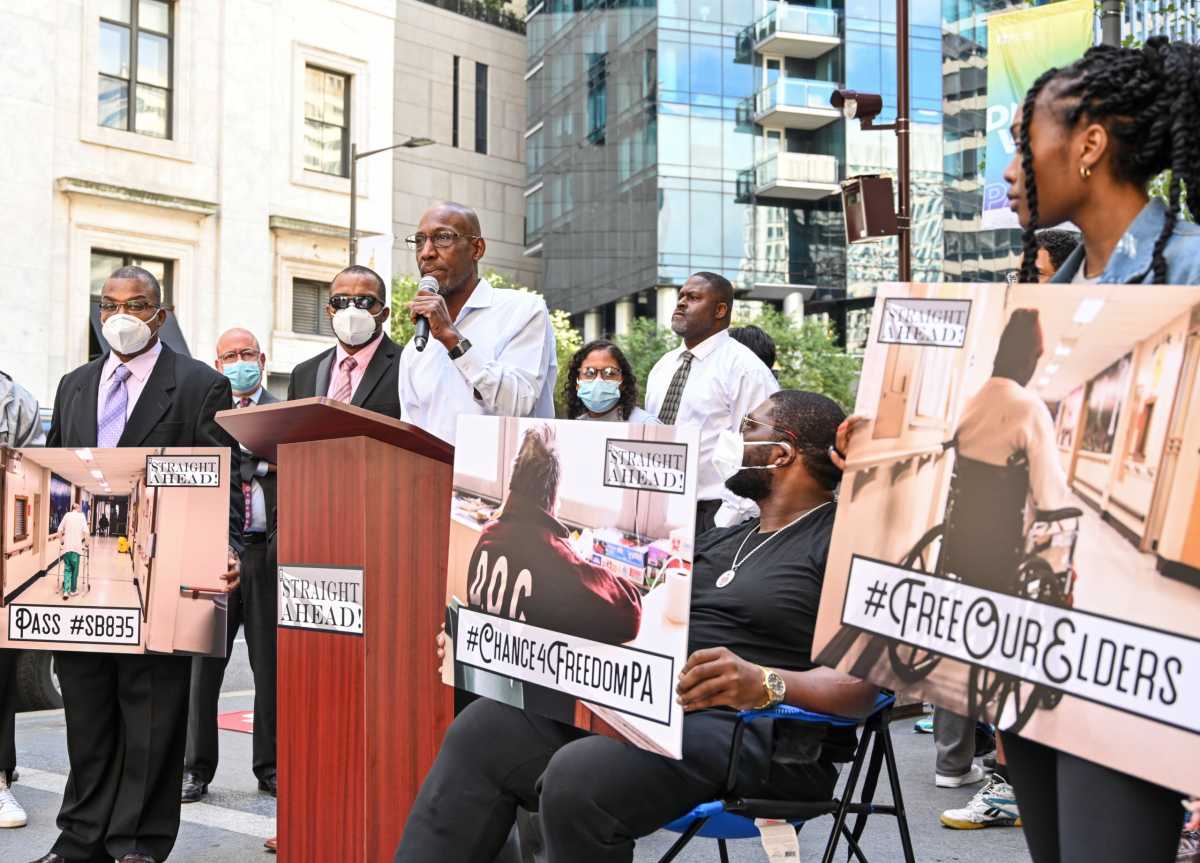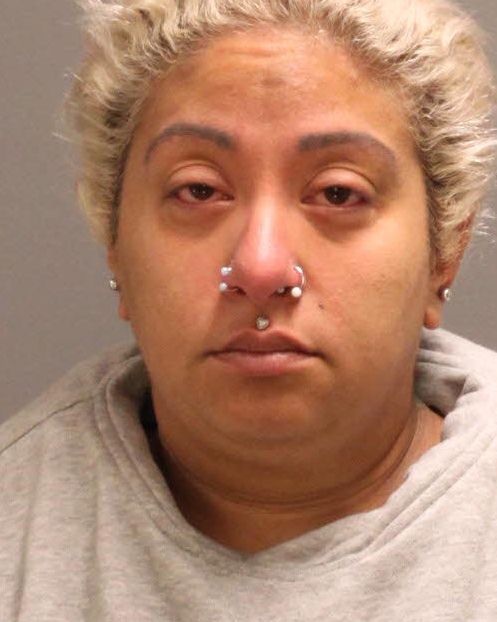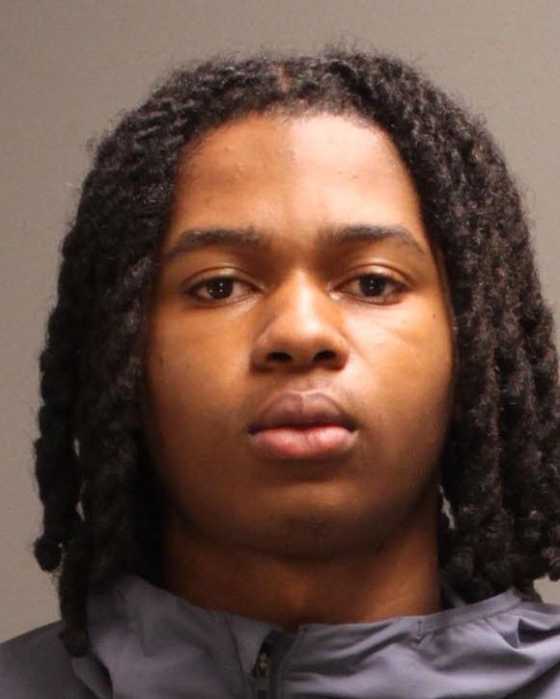Last September, Tyree Wallace, an incarcerated individual at Pennsylvania’s Phoenix State Correctional Institution who continues to serve a life sentence for a murder he says he did not commit, left his shift at the prison hospice feeling an overwhelming sense of sadness. Most days, the 42-year-old Philadelphia native keeps upbeat with a positive attitude, despite being locked up for the past 23 years without the possibility of parole. Wallace, the founder of nonprofit organizations including MANN UP, Men of Action, and the newly formed Systemic Reformative Change, uses his time at the hospice to give back to others, helping elderly and sick incarcerated men feel more comfortable during their dying days.
As a prison “lifer” who volunteers in the hospice, Wallace is both witness to and possible victim of what criminal justice advocates call death by incarceration — cruel and unusual punishment that transforms life without parole into a decades-long death sentence. But the law gives judges little leeway here, mandating they hand down life without the possibility of parole for all first and second-degree murder convictions. Pennsylvania has one of the nation’s oldest prison populations, with around 10,000 elderly incarcerated persons … and at least one whose end-of-life care became too much to bear for Tyree Wallace.
“I am currently volunteering for a man [in hospice] that I know well and respect immensely,” Wallace said. “[He] is without doubt a great man, and is currently in a position that is unsuitable for anyone and it is painful to watch this man endure.”
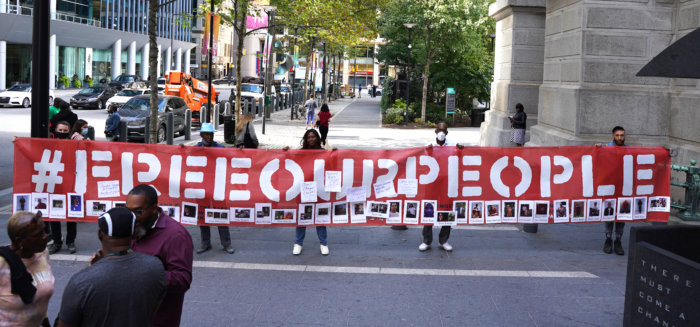
In Philadelphia, criminal justice advocates from organizations like Straight Ahead! and the Defender Association of Philadelphia have rallied around SB 835, bipartisan legislation spearheaded by State Sen. Sharif Street to give parole eligibility to older and chronically ill incarcerated individuals. Almost 25% of the state’s prison population is above the age of 50, living in conditions where extreme violence, solitary confinement, lack of proper nutrition, and more shorten life expectancy and make 55-years-old the official cutoff to be considered geriatric.
Street’s legislation doesn’t offer incarcerated individuals any guarantees. Still, it does give elderly populations, many of whom are persons of color from Philadelphia, a second chance with the state’s parole board and an opportunity for dignified end-of-life care.
And, as research shows, the cost of senior and hospice care in correctional facilities continues to skyrocket, with Pennsylvania spending about $500 per day on those in personal care units and $34 million annually on medications. But many advocates consider it money wasted, as a recent study from Montclair University looking at juveniles sentenced to life without parole and subsequently released found a recidivism rate of only 1.14%.
“We can spend sometimes $100,000 to house an older, geriatric inmate and it’s fiscally irresponsible, especially when one considers that the geriatric inmates have statistically a lower probability of recidivating than even randomly selecting people from the general population,” Street said. “They are an incredibly safe population and it doesn’t make a lot of sense to keep them incarcerated when it’s costing the public a ton of money.”
Ayanna Lyons, a policy advocate with the nonprofit organization Straight Ahead! noted that most elderly incarcerated individuals don’t enter the system at an advanced age — about 73% of people convicted of first or second-degree murder are under 25, while 50% are younger than 20. In 2012, the United States Supreme Court decided, in Miller v. Alabama, that juveniles can no longer be sentenced to life without parole. But, as Lyons said, that still left thousands of people sitting in prison who were convicted of a crime before their brains were fully developed. According to her, the average age that most prison “lifers” enter the system is 19-years-old.
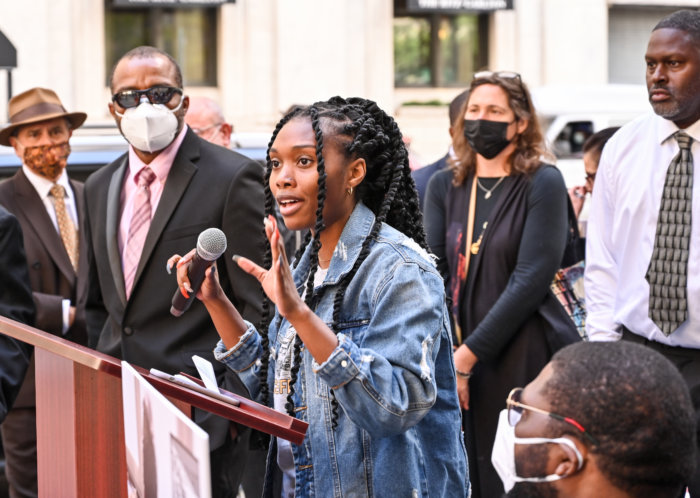
Perhaps most important, Lyons explained, is Pennsylvania’s aged prison population’s effect on communities across the state. “Not only does this impact — take from the community in a way that locks people up, when we talk about things like gun violence is raging in these communities, it’s because we suck the elders out,” Lyons said. “We take those people away and then there’s no release valve for people to come back into their community and do good things.”
In the 1970s, Pennsylvania commuted the sentences of over 250 incarcerated persons, but politicians have taken a much more “tough-on-crime” approach to the process in recent years. Over the past two decades, the state commuted around 40 sentences, with the bulk of those coming under the current governor’s administration, and has offered only a handful of compassionate releases for medical reasons. And according to Katherine Parker, policy director at the Defender Association, at least one Philadelphia politician was responsible for filling up Pennsylvania’s correctional institutions.
“Google deadliest DA’s, Lynne Abraham in Philadelphia comes up,” Parker said.
“If you went to trial and lost for some of these very serious types of charges, you would be sentenced to death … and the ripple effect of that was not only a chilling effect on the trial process, but the imposition of life without parole sentences,” she continued. “And that’s partially why Pennsylvania is an outlier on how many people are currently serving sentences that call for them to die in prison.”
But SB 835, Street’s legislation, which is waiting for a hearing in the judiciary committee, can change all of that. Aging and chronically ill incarcerated persons can have a second chance to reenter their communities and prove their life’s value beyond a single, youthful mistake while receiving end-of-life care with dignity. And men like Tyree Wallace can regain something often lost in prison hospice — hope.



